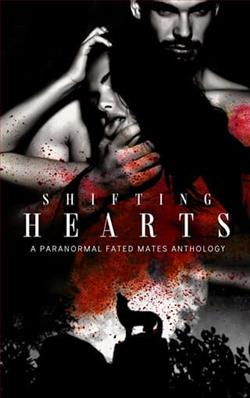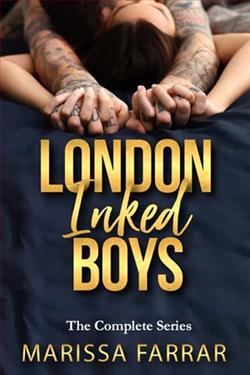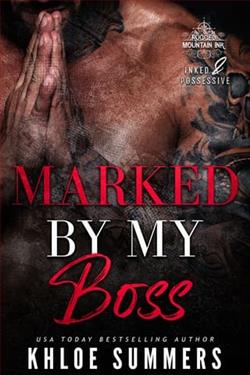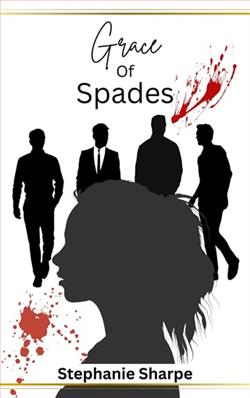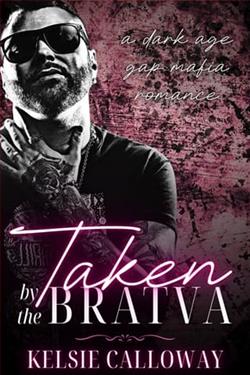Page 15 of The Bane of a Sinner
Her head arched back, a sound like a strangled cry tearing from her throat. The eruption was a tidal wave, washing over us both. My own climax followed, a brutal, explosive release as I buried myself deep within her, filling her until she gasped, a shuddering breath that spoke of utter surrender. Her muscles clenched around me, a viselike grip that held me captive in that ecstatic moment. Time ceased to exist. There was only the exquisite agony of pleasure, the complete and utter annihilation of self in the face of overwhelming desire. We lay entangled, two wrecked vessels in the aftermath of a storm, the silence punctuated only by our ragged breaths and the frantic pounding of our hearts.
Chapter Eight
August
Life with Diana was just better. It was almost as if she’d always been a part of my life. As the days turned into weeks, we quickly found our rhythm, and while my residency kept me rather busy, so did her classes at NYU.
The only hiccup I found was in my association with the club. While Diana didn’t seem to mind, the constant calls and demands from the club, along with George Stone, were beginning to take their toll.
The DNA database, a project George initiated and demanded I spearhead, was rapidly morphing into a tangled web of obligation. George’s increasingly insistent demands felt less like curiosity and more like a personal crusade. He’d grill me on minute details of the familial lineage reconstructions; his eyes, usually sharp with business acumen, now held a peculiar glint, as if piecing together a puzzle that only he could see. I confided in Diana one evening, the weight of it all pressing down. She listened with her usual quiet empathy, her hand finding mine across the table, a silent anchor in the rising tide of my unease. She suggested I try to understand George’s motivation, to dig a little deeper into why he was so fixated on this particular aspect of the database.
Her suggestion, simple yet profound, shifted my perspective. Perhaps George wasn’t just a nosy asshole with a God complex; perhaps he was a man with a mission. I started spending my limited free hours not just maintaining the database, but poring over the data itself, looking for patterns, for anomalies. Thesheer volume of genetic information was overwhelming, but George’s specific inquiries began to highlight certain obscure branches of families throughout the underworld, but more so detailing and recording the lineages of the biker world. I quickly found certain recurring genetic markers that seemed out of place, like learning that Dakota, his second son, wasn’t the biological son of his wife, Virginia. Then there was the data that wasn’t connected to the club. Vast amounts of DNA that somehow found its way into the database I set up. So much so that it was overwhelming at times, yet when I asked who the data belonged to, George simply told me to keep my mouth shut and just file it all away.
It was like sifting through a vast ocean of names and dates, searching for a single, hidden person.
The club, meanwhile, remained a secondary concern, a buzzing distraction I tried to minimize. My loyalty was increasingly strained. The clandestine nature of the club’s operations clashed with the budding clarity of my purpose, a purpose that felt inextricably linked to the DNA data and George’s cryptic pursuit. My residency, Diana, the club, and George’s relentlessness—it all became a delicate balancing act, and the ground beneath me felt like it was beginning to shift.
One particular anomaly in the biker lineage data gnawed at me. A cluster of individuals, all bearing a specific, rare genetic marker, seemed to originate from a single, untraceable point of origin, outside of any known familial tree. They appeared in the records sporadically, linked to no specific family unit within the club’s hierarchy, yet their genetic signature was undeniable. George’s questions when I touched on these outliers grew more pointed, his usual veiled curiosity morphing into an almost desperate urgency. He’d lean closer, his voice dropping to a near whisper, dissecting bloodlines that, to anyone else, would appear as unconnected dots in the vast genetic ocean.
Diana’s suggestion to understand George echoed in my mind. So I started cross-referencing the club’s filtered data with broader public records, a task made exponentially harder by the deliberate obscurity woven into the club’s dealings. The sheer volume of unfiltered DNA, designated simply as “miscellaneous,” felt like a deliberate smokescreen. It was as if the club was a collector, not just of people and their secrets, but of their very genetic essence, cataloging it with a purpose far beyond simple identification. The recurring marker, and George’s fervent interest in it, began to paint a disquieting picture, hinting at a lineage George was actively trying to trace, or perhaps, to erase.
The weight of this burgeoning knowledge, coupled with the ever-present demands of the residency and my evolving relationship with Diana, felt like an unbearable pressure. The club, once a source of a strange, dangerous camaraderie, now felt like a labyrinth designed to conceal a truth I was rapidly unearthing. I was no longer just an observer; I was a cartographer of secrets, mapping the hidden connections within the underworld, one genetic marker at a time, and George Stone was my silent, egomaniacal guide.
“Hey, Bane,” Shame said, walking into my office at the clubhouse. “I’m gonna head out. I’ve got somewhere I need to be.”
“Where?” I absentmindedly asked as I concentrated on the screen before me and typed in more information.
“It’s nothing. Just an appointment in Chinatown I forgot about.”
Confused, I looked up from what I was doing and glared at my intern. “Chinatown? Who the fuck are you meeting there? You know the TRIAD runs that part of the city.”
“I know,” Shame muttered, looking everywhere but at me.
A tense silence settled between us. Shame shifted from foot to foot, clearly uncomfortable, but I could see the steely resolve beneath the veneer of nervousness. I leaned back, arms folded, waiting.
Finally, he muttered, “It’s just someone with information about—about my family. I know you think I’m hiding something, but I swear, Bane, this is personal.”
I wasn’t sure if I believed him, but there was something in his tone—a brittle edge, a plea for me to let it go. Still, my instincts screamed at me not to. The club had always taught me that paranoia was just another word for survival.
After Shame disappeared down the hall, I quickly pulled up his background again, digging through the vague, almost nonexistent file I had on him.
Something wasn’t right.
Going with my gut, I gathered my belongings and left quickly. The second I stepped outside the clubhouse, I watched as Shame rode out of the compound. Running to my car, I hopped in and followed him. I didn’t know why. I trusted my intern. Shame was a good kid. Solid and honest as the day was long, but my gut told me something was off. The man never had a problem looking me in the eye until tonight, and I wanted to know why.
The ride from the harbor to the heart of Chinatown was long. Chinatown was a labyrinth of neon glow and hushed whispers, a world away from the familiar grime of the harbor. I kept a healthy distance, my tinted windows shielding me from the sharp, assessing eyes of the TRIAD’s enforcers. Shame, oblivious or perhaps deliberately bold, weaved his bike through the narrow streets, a bright beacon in the encroaching darkness. My gut churned with a familiar anxiety, a cold dread that had become a constant companion since I’d started digging into George’s DNA obsession. Shame’s sudden evasiveness, his vaguepronouncements about family and information, only amplified the gnawing suspicion that something was fundamentally wrong. He was more than just an intern; he was a piece of the puzzle I hadn’t yet solved, a variable I hadn’t accounted for.
The trail led me to a nondescript teahouse, its red lanterns casting an eerie glow on the rain-slicked street. Shame dismounted, his back to me, and disappeared inside. I cut the engine; the silence amplifying the thrumming of my own pulse. The air was thick with the scent of jasmine and something else... something elementally dangerous that chilled me to the bone. George’s crusade, my residency, Diana—they all faded into the background, replaced by this immediate, visceral need to understand what Shame was doing, and who he was meeting. This wasn’t just about loyalty or survival anymore; it was about the intricate, often deadly tapestry of connections I was being forced to unravel, and Shame had just pulled a thread that felt dangerously loose.
Cautiously, I approached the teahouse, the low murmur of conversation filtering through the paper-thin walls. Through a sliver in the drawn blinds, I saw Shame seated across from a man, his face a network of deep lines, his eyes sharp and alert. They spoke in hushed tones, their words lost to me, but the intensity of their exchange was palpable. I stood there as the man slid something across the table to Shame, who picked it up and stuffed it into his leather cut, before standing and then quickly leaving.
I knew I should follow Shame, but my eyes stayed on the man who slowly rose from his seat. When he turned to leave, everything inside me froze as my eyes landed on the large golden patch on his back and I whispered, “What the fuck?”
Hearing Shame’s bike start up once more, I ran to my car and got in just as Shame sped past, heading deeper into Chinatown.
I followed him deeper into the neon haze of Chinatown, the air thick with the scent of soy and incense. Shame never looked back, his pace brisk, purposeful. He slipped into a narrow alley and killed the engine of his bike as he dismounted, then ran up a battered staircase to an apartment I’d never seen listed in his file. I waited, watching the windows when I saw a light turn on moments later.
Getting out of my car, I walked into the apartment building and headed up to the third floor. Seeing light shining from under the door, I knocked.










